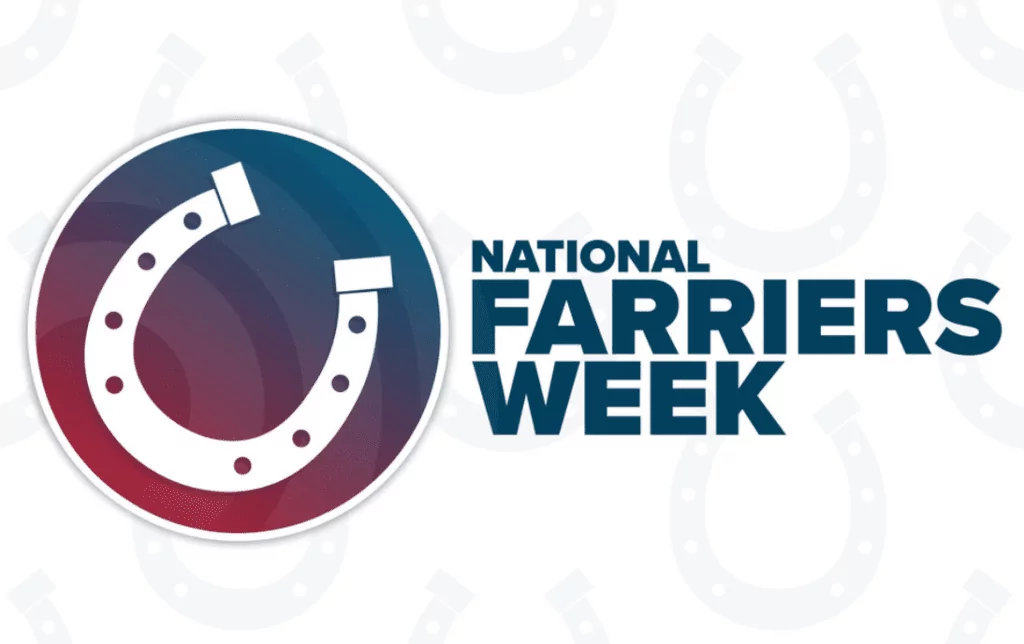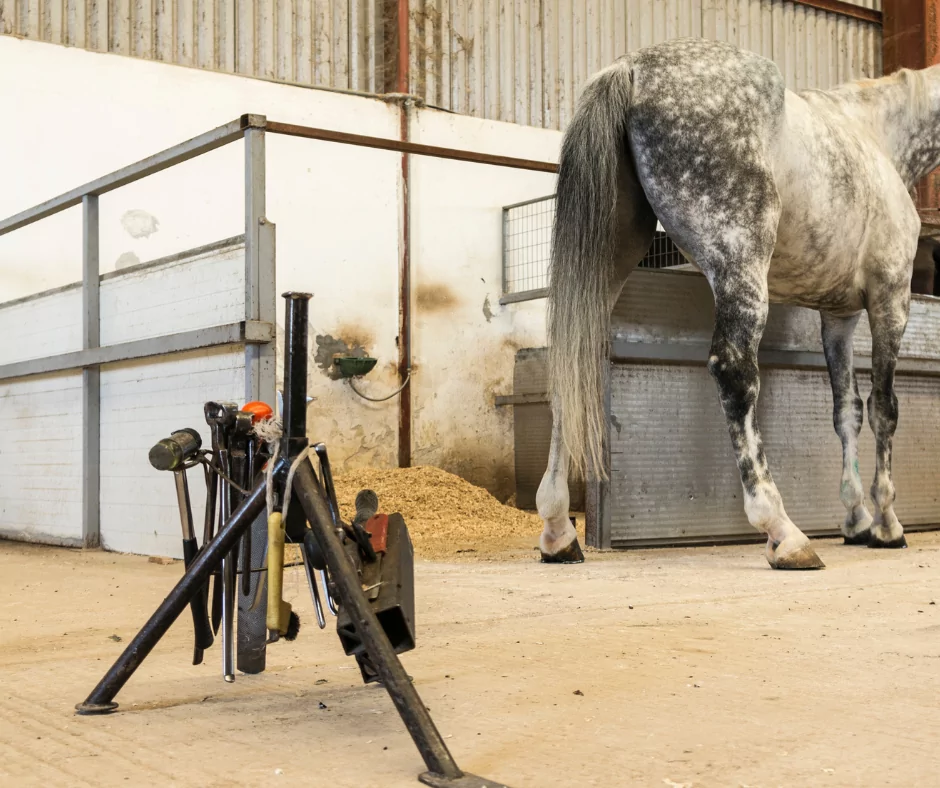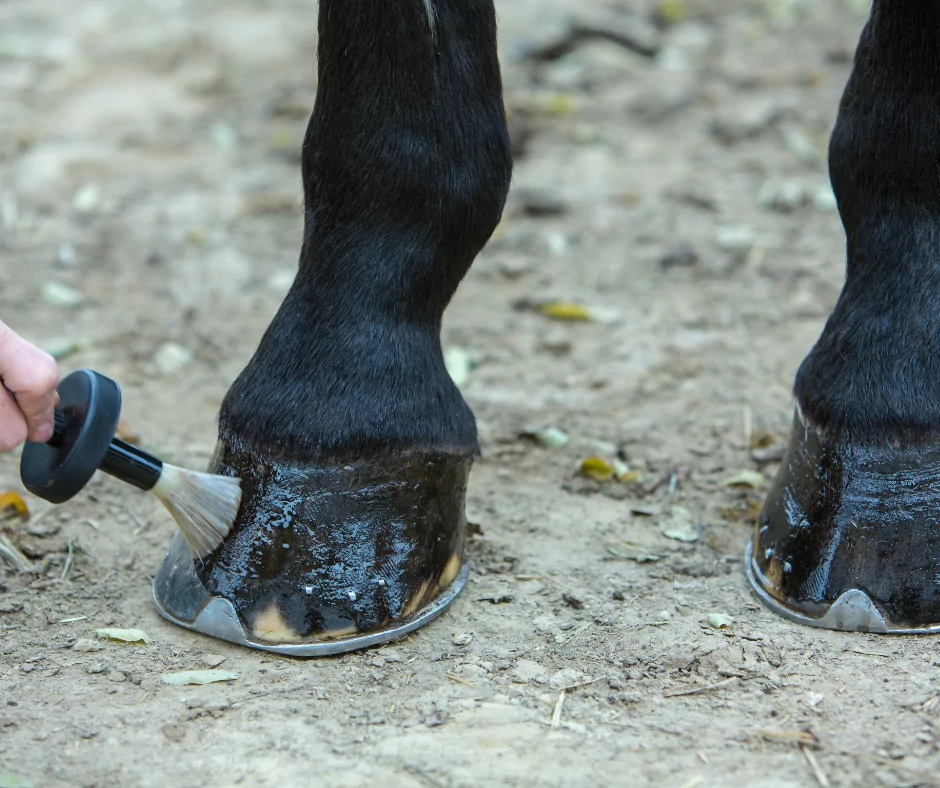National Farriers Week is a celebratory week dedicated to the restless men and women that care for and maintain the hooves of our lovely horses. It is celebrated annually in the second week of July. This year we celebrate the farriers from the 4th-10th of July. This week is aimed at horse owners giving thanks to these specialists in horse hoof care.

The History of National Farriers Week
Farriers are animal experts who work with horses, donkeys, and other equines. They help horses transition from their natural environment back to human care by developing better shoeing techniques or setting up a horseshoeing routine that is practical for human-owned horses.
This week is National Farriers Week. Every year, this week is here to celebrate the farrier job and all of the hard work they do for animals across the country. During National Farriers Week, it is important to not only thank the farriers but also educate people about what they can do for their horses.
National Farriers Week was founded in 2009 by one of the leading farrier organizations out there: The American Association of Professional Farriers (AAPF). The AAPF was founded in 1981 and is dedicated to the continuing education of farriers.
In addition, the AAPF provides resources for farriers to do their jobs better through research groups, listservs, and more. The association also offers a number of certifications including Certified Journeyman Farrier (CJF), Certified Master Farrier (CMF), and Certified Professional Inspector Evaluation (CPIE).
How to Become a Farrier?
Becoming a farrier is a rewarding career choice for those who have a passion for horses and enjoy working with their hands. Here are the steps to become a farrier:
- Gain experience with horses: Before pursuing a career as a farrier, it’s important to have a solid understanding of horse behavior and anatomy. This can be achieved by working with horses, volunteering at a stable, or taking horseback riding lessons.
- Find a farrier mentor: The best way to learn the trade is through an apprenticeship with an experienced farrier. Look for a local farrier who is willing to take you on as an apprentice and learn the trade hands-on.
- Complete a farrier training program: While not always required, completing a farrier training program can help you develop the necessary skills and knowledge to become a successful farrier. Look for accredited programs, such as those offered by the American Farriers Association.
- Obtain a farrier certification: While certification is not mandatory, it can provide credibility and help you stand out in a competitive market. The American Farriers Association offers certification programs that include both a written and practical exam.
- Invest in the right tools: As a farrier, you will need to invest in a variety of tools, including a forge, anvil, hammers, and nippers, among others. Quality tools are essential for providing a high level of service and ensuring the safety of both the horse and the farrier.
Becoming a farrier requires a combination of education, training, and hands-on experience. With dedication and hard work, you can turn your passion for horses into a fulfilling career as a farrier.
What Does a Farrier do?
A farrier provides a service that is highly specialized. Farriers are not veterinarians, but they do provide an essential service to the horseshoeing industry.
Farriers typically work on horses in the horseshoeing industry. They can work at stables and racetracks. The job of a farrier is to keep horses’ feet healthy, including trimming and filing their hooves and putting shoes or boots on them if needed. Farriers can also work in a variety of other settings such as with cattle and goats.

Farriers are very knowledgeable about animals, especially horses. For this reason, the job is typically not the first career choice for someone without experience in the industry. It typically requires at least a year or two of apprenticeship work under a master farrier before one is capable of working on his or her own. Apprentices study how to shoe horses and other animals under the supervision of a master farrier until they are ready to work on their own.
This is not just a regular and easy job. Being a farrier requires specialized skills in caring for the hooves, knowledge in blacksmithing, and of course to be knowledgeable in diseased or injured hooves.
Taking care of these amazing animals it’s not easy at all. You can easily get stepped on, bitten, nuzzled or nibbled, or even be called for an emergency at odd hours.
This year is the 23rd anniversary of this holiday. If you have a favorite farrier, do not forget to acknowledge him or her and to celebrate this day together.
If you want to be part of the farriers’ community, or just up to date on all the news in the farrier market make sure to read the “American Farriers Journal”.
Check out this cool video on a farrier caring for a horse’s hoof:
Why is Horse Hoof Care Important?
Horse hoof care is an important part of the overall health and well-being of a horse. Many factors can affect hooves, including poor nutrition, age, and amount of exercise. It is important to look after your horse’s feet in order to maintain optimum health.
Genetics plays an important part in the health of a horse’s hooves. Thick, dense hooves are ideal. Thin or brittle hooves can be difficult to keep healthy. It is important to do regular inspections to ensure that your horse’s hooves are healthy and free from damage caused by wear, injury, or infection.

Exercise and nutrition have a huge impact on the health of a horse’s hooves. Regular exercise keeps the feet strong and encourages blood flow, which in turn helps a horse’s body fight many diseases.
Happy National Farriers Week!
Apart from farriers, there are also other noble professions in the veterinary industry for horses, such as equine vets.
Remember to add your memories and ways that you commemorated this holiday dedicated to farriers week on social media by using the hashtag #NationalFarriersWeek and #ILoveVeterinary.
